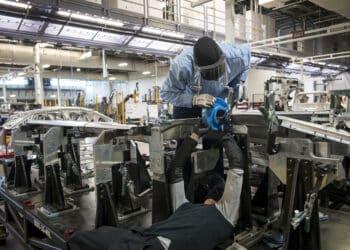Wells Fargo’s Insurance Woes Differ From Fake Accounts Scandal, Company Says

On the surface, there are a lot of similarities between Wells Fargo & Co.’s faked checking accounts scandal and Wells Fargo Dealer Services wrongful charges for collateral protection auto insurance — but the lender argues the “root cause” is very different.
In the first instance, bank employees — in order to satisfy sales quotas — opened millions of fake checking accounts without the consumer’s knowledge and racked up late and overdraft fees that hurt their credit score. In the latest episode, the banks auto division added hidden insurance policies to borrower’s monthly loan payments even if they already paid for insurance from another provider — sending hundreds of thousands into delinquency and tens of thousands through wrongful repossession practices.
However, there is one large distinction between the two — the bank never incentivized employees to sign consumers up for collateral protection insurance (CPI), according to a Wells Fargo Dealer Services spokeswoman.
“I actually take issue with anyone saying these issues are similar,” the spokeswoman told Auto Finance News. “The issue with CPI is vendor oversight. Our process needed to be updated and need to be refreshed. We weren’t looking at a team member somewhere receiving compensation for placing CPI, that just isn’t what was happening.”
Furthermore, because the majority — 95% — of the company’s auto portfolio is originated through indirect channels at the dealership, there is little opportunity for a “cross-sell” like the company saw during the peak of the faked accounts scandal, AFN previously reported.
In other words, the root cause of the faked checking accounts scandal was aggressive employee incentives, while at Dealer Services the issue was vendor oversight.
“We are overlooking how we oversee vendors to make sure we’re checking and double checking, with the right frequency,” the spokeswoman said. “If you don’t check something often enough, the process can get stale and unintended consequences occur. We intend to keep that from happening.”
National General, the auto insurer who placed CPI for Wells Fargo, defended its practices as “appropriate” and “compliant,” earlier this week. The lender stopped placing CPI policies from National General in September 2016, however, policies are made on a 12-month basis, so there are still borrowers paying for the policy, the spokeswoman confirmed.
Wells Fargo agreed to pay $80 million in remediation to consumers affected by the insurance policy.
Still, that hasn’t stopped seven Democrats on the Senate Banking Committee from sending a letter to the lender saying they are “extremely concerned” about the “seemingly endless chronicle of Wells Fargo’s fraudulent practices and widespread misconduct,” and called it “eerily familiar” to last year’s faked checking accounts scandal.
Senator Elizabeth Warren renewed her call to remove the Wells Fargo board members who served during the bank’s fake accounts scandal from 2011 to 2015.
Additionally, the minority member of the Senate Banking Committee sent a letter to Committee Chairman Mike Crapo (R-Idaho) asking for a September hearing with Wells Fargo CEO Timothy Sloan and Board of Directors Chair Stephen Sanger, to “receive testimony about new developments in the bank’s fake-accounts scandal and related matters.” The letter directly addressed the insurance issue as a topic of discussion.
For more coverage of Wells Fargo’s insurance practices click here.









